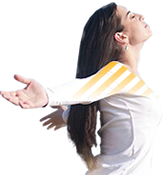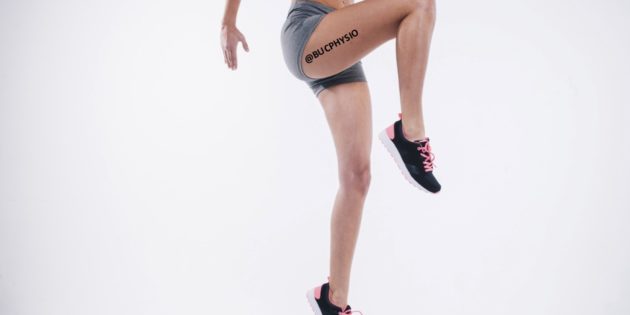(Commonly known as Patella Tendonitis)
Patella tendinopathy, also known as jumper’s knee, is an overuse disorder characterised by pain at the base of the patella (kneecap) with activities such as squatting, sitting or going up and down stairs. The condition is known as jumpers’ knee because it commonly affects athletes involved in sports that require jumping and repetitive loading of the patella tendon, such as basketball, volleyball, football and tennis.
Landing and jumping activities put a great amount of stress on the patella tendon. This tendon is responsible for transmitting the full force of the quadriceps muscles to the lower leg and during activities such as jumping and landing, this force can actually be many times more than your body weight.

What are the symptoms?
The hallmark sign of patella tendinopathy is sharp, localised pain in the patella tendon just below the base of the patella. The pain is usually aggravated by activities that increase load through the quadriceps muscles such as squatting and jumping or as simple as going up and down stairs. Pain associated with patellar tendinopathy usually occurs gradually, often when a person has been very active for a long period of time or if they have recently increased their training schedule. The pain will often start as a small niggle, gradually becoming more noticeable and there may also be a feeling of stiffness with movements of the knee or first thing in the morning.
How does it happen?
Patella tendinopathy is not a traumatic condition rather, it usually develops gradually over time due to prolonged overloading of the tendon. Like other tissues in the body, tendons are dynamic and can adapt to be able to withstand more force with training. However, if a tendon is unable to adapt to increased load quickly enough, it can develop micro tears leading to pain and dysfunction, known as tendinopathy. The risk of developing this condition can be increased by external factors, such as the type of sports chosen, training volume and the hardness of the training surface. I’ve also seen an increase in tendon problems in the knee when patients have had a systemic virus. Certain medications too can cause a transient decrease in tendon integrity and can put you at risk of injury.
Intrinsic factors such as bone structure, muscle length, diet, age, muscle strength and overall health can also affect the ability of a tendon to adapt to forces. Anything that impairs the tendon’s ability to absorb force can lead to the development of tendinopathy. In general, men are affected by this condition more often than women.
How can physiotherapy help?
As with all conditions, the first step to effective treatment is an accurate diagnosis. Your physiotherapist will be able to correctly identify this condition and any factors that have led to its development. Treatment for any tendinopathy will involve a degree of rest and re-evaluation of your training schedule. Treatment of the tendon itself has been shown to be most effective with a targeted exercise program involving isometric and eccentric muscle contractions. These types of movements have been shown to help stimulate healthy tendon tissue to increase strength and support the damaged tissue, ultimately reducing pain. Tendinopathies can be notoriously difficult to resolve without patience and commitment to a rehabilitation program guided by a Physiotherapist.
If you’d like more info on this, and some easy, actionable tips you can use now to start easing your knee. We have a free knee pain guide that we can send you. Connect with us on 020 87474 029(Chiswick) , 020 87887 804(Putney) or email us on info@bodiesunderconstruction.com and tell us what’s going on with your knee. A member of the team can take your details and we can email or post you a copy.

FREE REPORT: “HERE’S HOW YOU CAN GET IN ON ALL THE FREE ADVICE CURRENTLY BEING GIVEN AWAY BY OUR BEST PHYSIOS TO PEOPLE WHO WANT TO KNOW HOW TO BRING A FAST END TO THEIR “DAILY, ANNOYING AND NAGGING” KNEE PAIN…BEFORE IT GETS ANY WORSE”!
…Meaning A Better Night’s Sleep, More Energy, Less Worry, And Above All…MORE Freedom To Do Things With LESS PAIN And Less Tension!… And That Would Be Nice, Right?
About the Author: Leslie Abrahams

Every week, for over 20 years, 100’s of people aged have consulted Leslie Abrahams looking for answers to concerning questions about, and for, a fast end to their health worries and physical pains and stiffness. He has previously worked and travelled with high-level athletes in the field of cycling and volleyball. Leslie also has a special interest in Spinal Treatments and Rehabilitation, lower limb injuries, and has experience dealing with patients post injury or surgery.
Leslie is a Master Trainer for the world renowned Australian Physiotherapy and Pilates Institute(APPI Pilates). He is regular key note speaker at conferences and travels internationally to present on modified exercise for rehabilitation. Leslie is the founder of Bodies Under Construction Clinics situated in Chiswick and Putney, London. South West London’s Specialist Private Physiotherapy Practice for People of all ages, but especially those in their 30’s. 40’s, 50’s, 60’s and beyond, who want to keep healthy and active.
Cover photo by Clem Onojeghuo on Unsplash
- Back Pain. Stop Letting it Control Your Life: Discover How Physiotherapy Can Help - February 27, 2023
- Wanting to have an injury free summer of Running………..Read on! - May 16, 2022
- Top 5 tips when buying new running trainers! - March 2, 2022


